The Spanish Government initiates constitutional reform to shield the right to abortion
The Government shall seek the support of the Public Prosecutor's Office for constitutional reform and shall urge three Autonomous Communities governed by the Public Prosecutor's Office to create records of conscientious objectors to comply with the law.
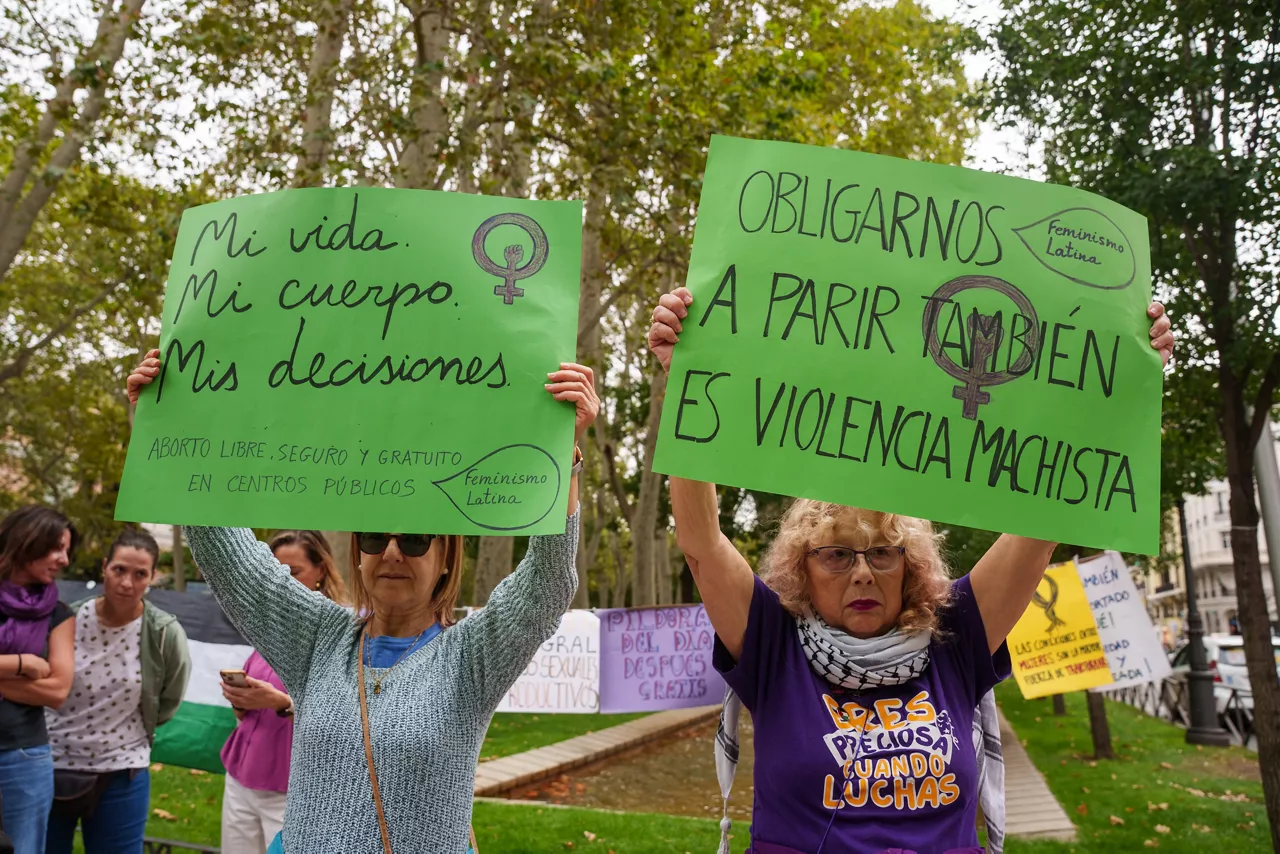
A protest in Madrid for the right to abortion.
On Tuesday, the Spanish Government launched measures to guarantee the right to abortion, both through constitutional reform and by calling on three autonomous communities governed by the PP to create records of conscientious objectors to comply with the law.
On Tuesday, the Council of Ministers promoted a reform of the Constitution to guarantee the right to voluntary termination of pregnancy, although this amendment will require the support of the PP to move forward.
The Government is aware that it will not be easy to push through the reform of the Constitution, as the Minister for Equality, Ana Redondo, has acknowledged, since it will take three fifths of Congress and the Senate, so only a vote in favour of the PP would allow abortion to be included in the Constitution.
The President of the Spanish Government, Pedro Sánchez, has recalled that Feijóo has defended the right to abortion on several occasions and has hoped that when the reform of the Constitution comes to Congress the people will support it, since they should have "no problem, no political or intellectual problems".
At the press conference following the Council of Ministers, the Minister for Equality expressed her hope that "the PP will rise to this challenge and join the defence of women's rights" and promised to "seek dialogue" and "reconcile wills" to achieve this.
Following the announcement of the ordinary reform of the Constitution, namely Article 43 of the Right to Health, the People's Leader has not spoken out, although in recent days, when the issue has been raised, he has opposed constitutional reform.
On Monday, the PP leader stressed that his party has a "very clear" position on abortion, as he recalled that abortion has been legal for decades and that this benefit is included in the health sector, fully incorporated into the legal system.
However, the President of the Community of Madrid, Isabel Díaz Ayuso, spoke on Tuesday and insisted that there will be no "blacklist" of doctors in her community, referring to the registration of objectors prescribed by the abortion law.
Ordinary reform of article 43
The Government's proposal to reform the Constitution to ensure abortion shall be ordinary and shall amend Article 43 on the right to health.
In particular, a new section, the fourth, will be introduced which will recognise the right of women to voluntarily terminate their pregnancy and oblige the public authorities to guarantee this benefit on conditions of effective equality for all citizens.
"Women are granted the right to voluntary termination of pregnancy, the exercise of which shall, in any case, be guaranteed by the public authorities on conditions of effective equality and the protection of the fundamental rights of women", is the text proposed for constitutional reform.
The proposal comes to the Council of Ministers after intense negotiations between the PSOE and Sumar. Early in the morning, the Socialist Government member expressed concern about the formula chosen and warned that the mere mention of abortion in the Constitution would be of no use and could even pose risks.
In the end, the two parties have agreed on a text which the Summary welcomes as a starting point and which, according to Redondo, unites all the interpretation that the Constitutional Court has so far made of abortion.
Once agreed, the Government has forwarded it to the Council of State, which shall decide within two months. This is a necessary step before the text reaches Congress for parliamentary proceedings.
Requests to Madrid, Aragon and the Balearic Islands
In parallel with these first steps to introduce the right to abortion into the Constitution, and in the face of the reluctance of some communities governed by the PP, the Ministry of Health has sent a formal request to the Community of Madrid, Aragon and the Balearic Islands to register conscientious objectors to abortion, as required by law.
If the Department of Health does not receive a reply within one month, it shall initiate proceedings before the courts to be compelled by a judge.
You might like
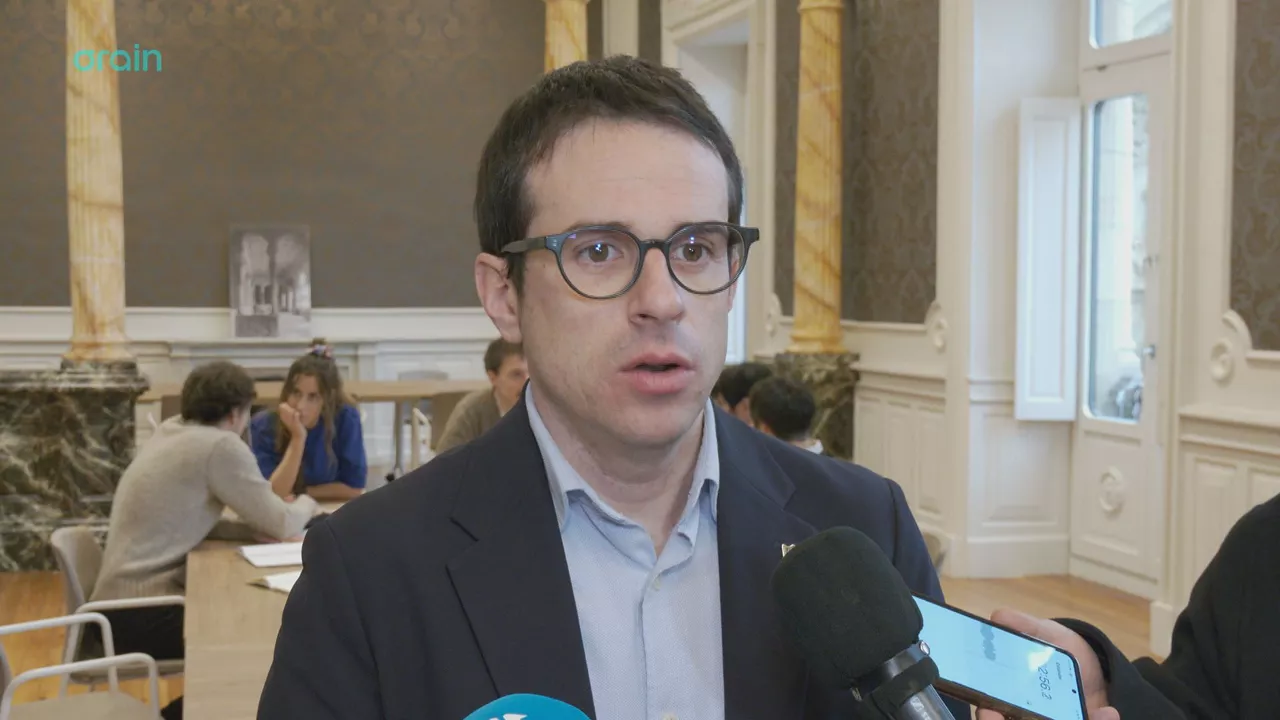
Otxandiano has considered it necessary to intervene in an "out-of-control market"
EH Bildu stresses that the most serious problem in the Basque Country and the main concern of the citizens is housing and criticizes the fact that the Government does not have the housing policy that the situation requires.
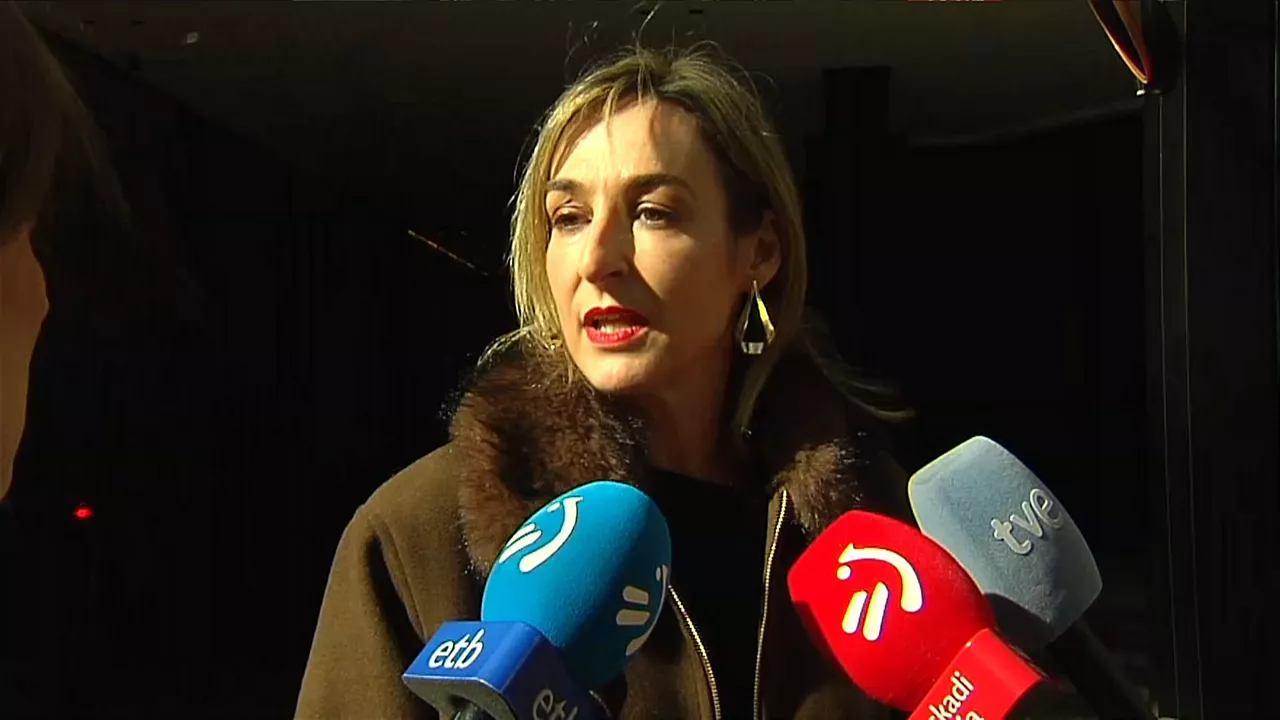
Ubarretxena highlights "progress" in negotiating Basque airports
The spokesman for the Basque Government has called for the Basque Country to be able to participate in the document establishing investments of EUR 13 billion and to have the power to decide on fees and strategy.
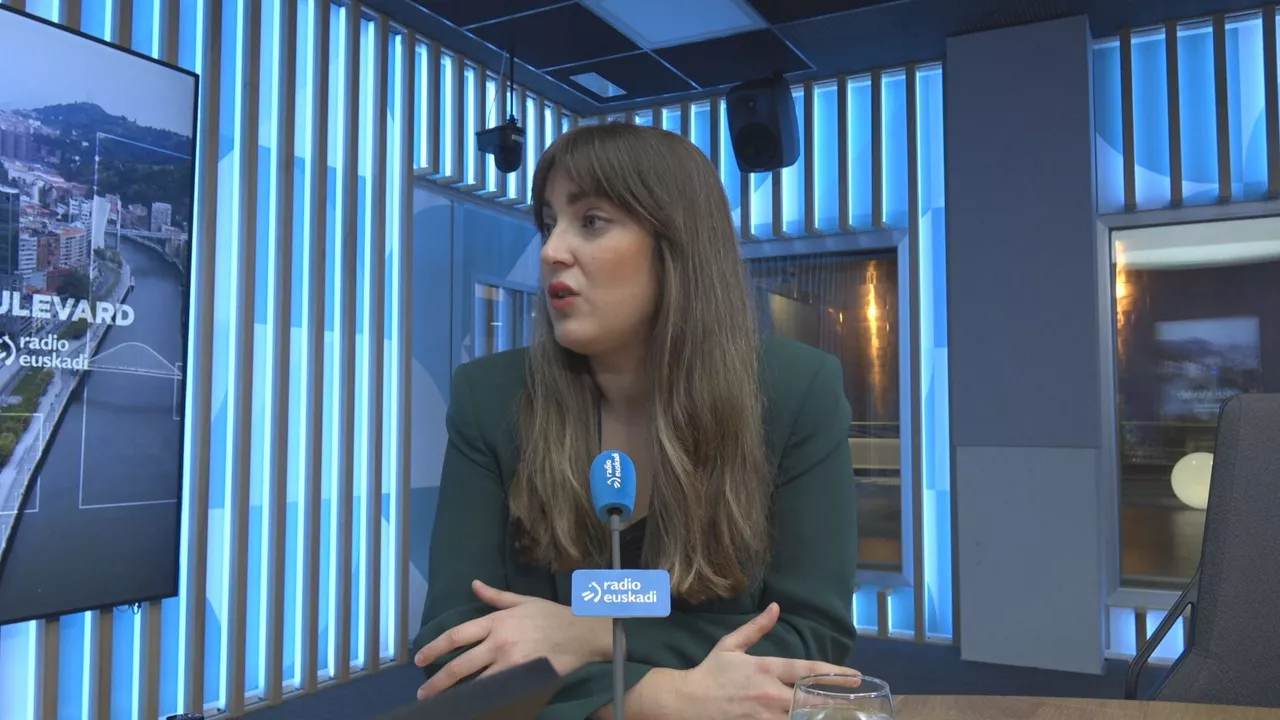
Alba Garcia: "I find it amazing that EH Bildu turns so lightly to the Basque right"
Asked about the left-wing alliance proposed by Gabriel Rufián, Sintre's General Coordinator, Alba García, has stated that EH Bildu has made it clear that the first option for an electoral alliance would be with the PNV.

Díez Antxustegi, on his relationship with the PSE-EE: "We are not in politics to quarrel with each other; I am not going to engage in such fights."
The PNV spokesman in the Basque Parliament, Joseba Diez Antxustegi, told the microphones of Euskadi Irratia that, in general, the relationship with the PSE-EE is good in the day to day. "If one day we have to listen we will have to accept something that we do not like, but we are not here to do it."

Representatives of the Government and the Spanish Government are meeting today in Madrid to discuss the competence of airports
On the other hand, Melgosa will propose to the Spanish Government that it support the process of regularizing migrants and recognize the Basque Country as the northern border.

The PP will vote in favour of Vox's bill to ban the burka and niqab in public spaces
Abascal's party initiative will be discussed this Tuesday in the Congress of Deputies.

Ubarretxena has a meeting this Monday in Madrid on the competence of airports
The establishment of the Subcommittee on Airport Management and Infrastructure was agreed by the President, Imanol Pradales, and the President of the Spanish Government, Pedro Sánchez, in the Bilateral Cooperation Committee in July last year, with the aim of analysing and discussing the various forms of transfer in the management of airports in the Basque Country.

More painted against the Ertzaintza have appeared in Amurrio
The union Esan has denounced what happened and has stated that wishing the Ertzainas death is "a message that legitimizes violence against the Basque police" and has called for "immediate and unqualified" public condemnation of all political forces.
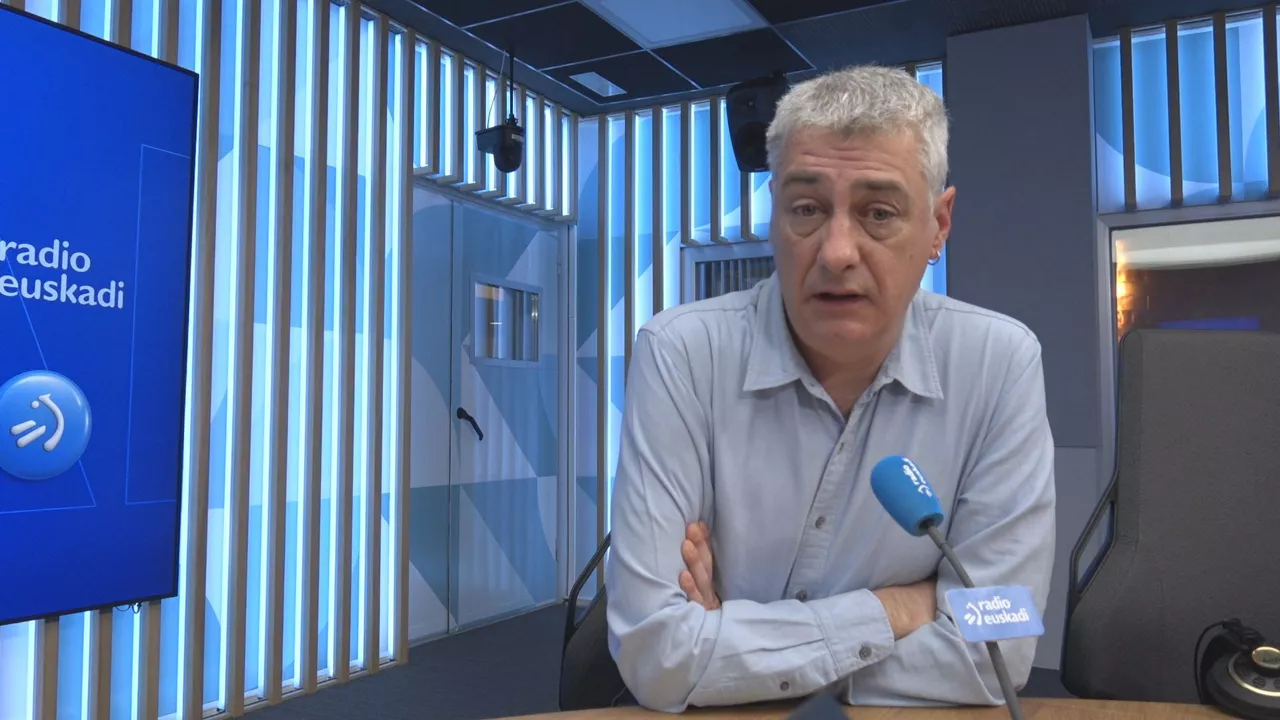
Matute, after saying no to Rufián: "We have always defended the unity of political action"
The deputy spokesman for EH Bildu in the Spanish Congress has distinguished between "unity of political action" and "unity of electoral action" and has ensured that "they will always be in the first" and that they have committed themselves to "various initiatives to prevent the extreme right from coming to power."
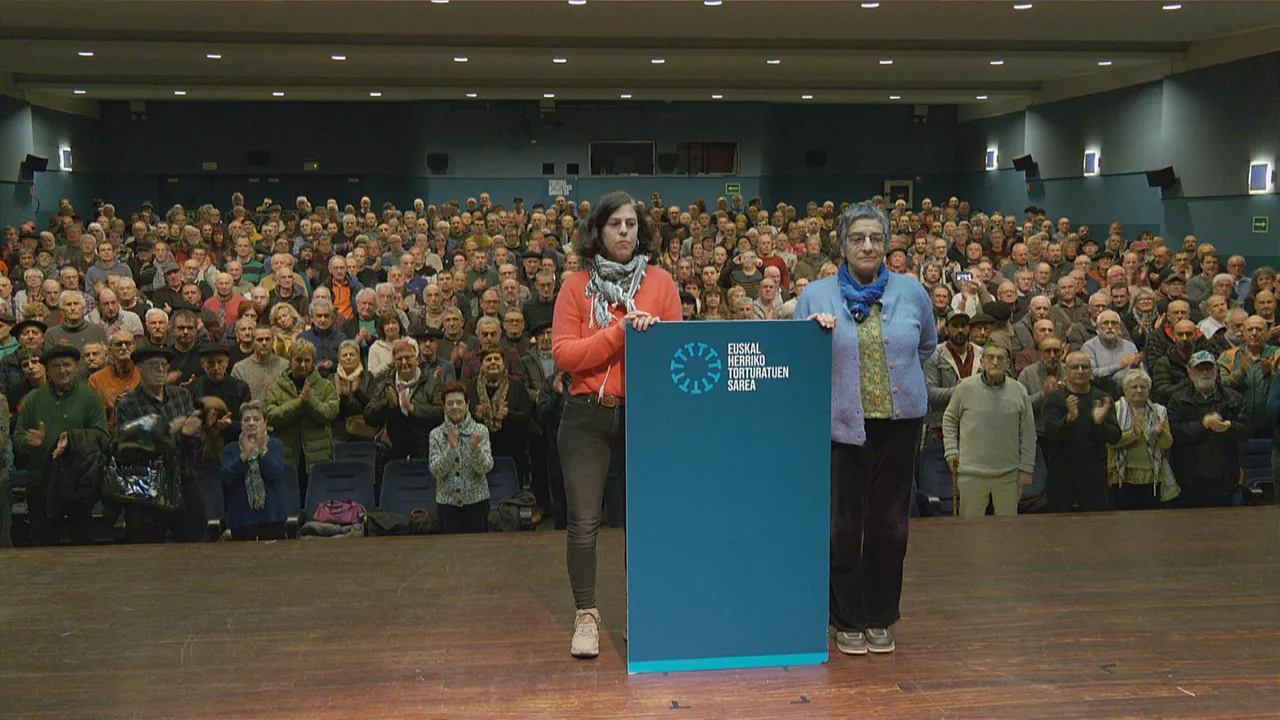
The Network of Tortured Persons of the Basque Country calls for a law on the official recognition of victims of State violence
The network has held its Second National Assembly in Eibar today, one year after its establishment, in which more than 5,000 documented cases have been highlighted and all of them "must be recognized."

